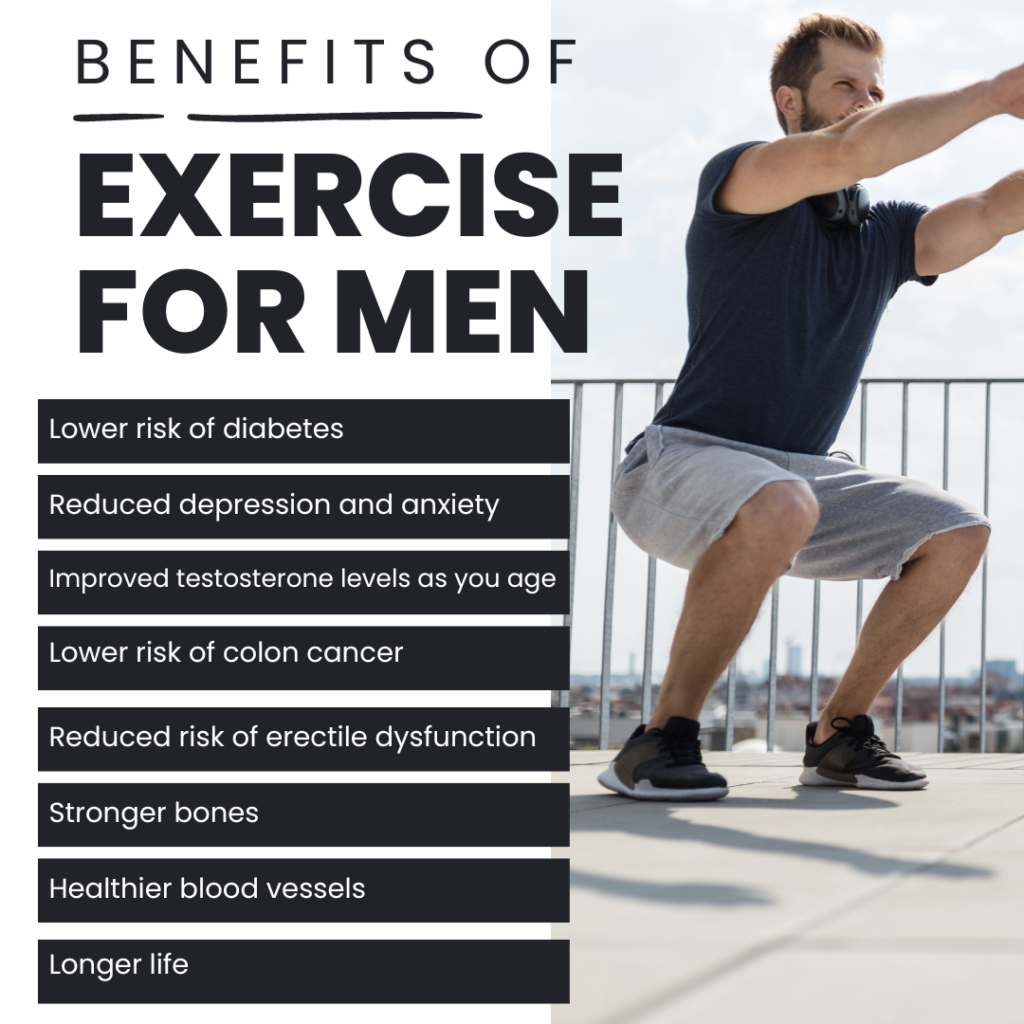June is Men’s Health Awareness Month
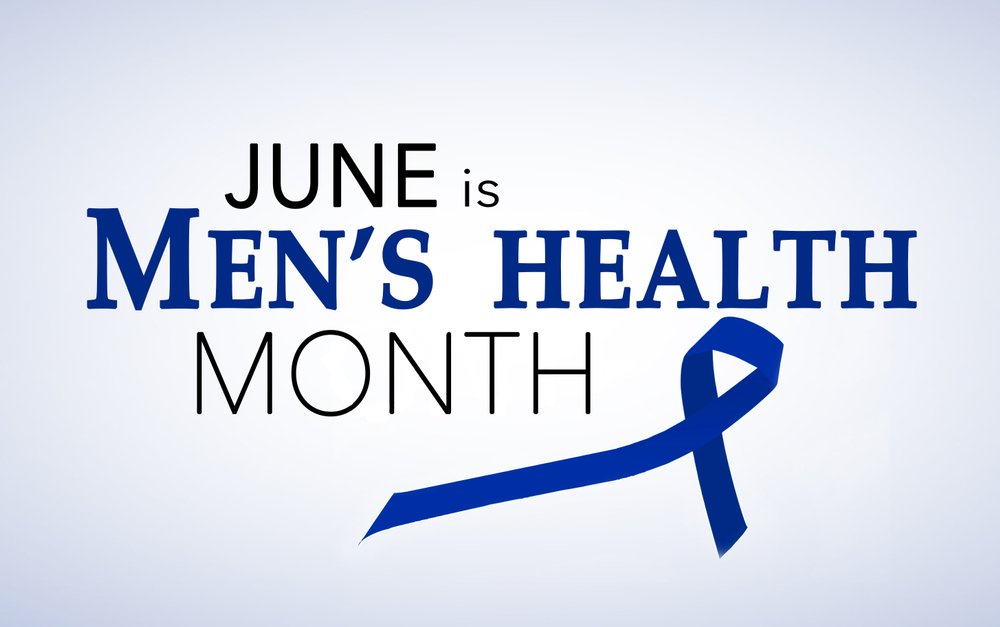
The month of June is dedicated to men’s mental health awareness, and June 10-16 is International Men’s Health Week. It’s meant to, not only raise awareness of men’s mental health issues, but to also encourage men to seek help.
Symptoms of mental health conditions in men may manifest themselves in more socially acceptable alternatives to sadness, such as anger. These symptoms can include irritability, difficulty concentrating, substance abuse, and suicide ideation.
Because conversations about mental health tend to center around women, it is important to acknowledge and address the unique barriers to care that exist in male populations, especially in queer men, men of color, and lower-income men.
COPING
There are a wide variety of coping mechanisms out there, but some are healthier than others. While hitting the gym or going on a quick run can be a great way to let off some steam, it is important to also explore other coping mechanisms, such as journaling, which can allow you to better understand and process emotions. Different coping mechanisms work for different people as well as different emotions, so it is important that people of all genders are educated and aware of the different ways to cope with their feelings.
Supportive communities
Find an environment that is welcoming, inclusive, and accepting of people from all backgrounds, and one that allows everyone’s voices to be heard. This is especially important when it comes to conversations about mental health and masculinity.
Feelings of guilt and shame around difficult emotions often persist from childhood to adulthood in men, who may continue to find it difficult to talk about their feelings or seek help for any symptoms they may be experiencing.
When men do come forward about how they are feeling, it’s important that they are somewhere that compassion, understanding, and support is shown.
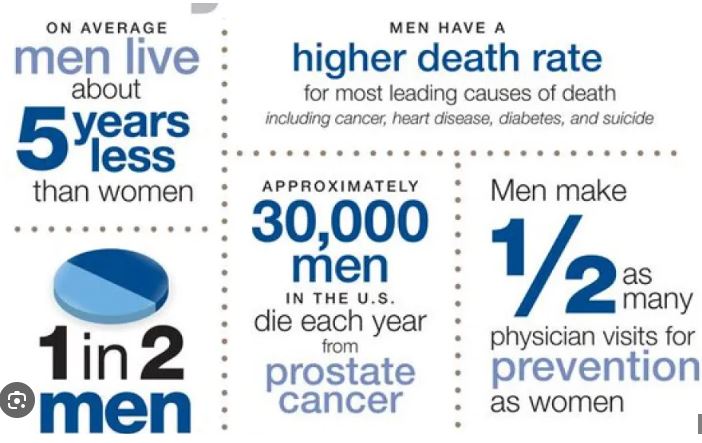
Here are some other important facts about men’s health to know:
The overall mortality rate is 41% higher for men than women, and it’s higher for men for 8 out of 10 leading causes of death—including heart disease, cancer, stroke and diabetes.
31% of men suffer depression in their lifetime and 9% of men have daily feelings of depression or anxiety. But only a quarter talk to a mental health professional, and only a third take medication. Pay attention to signs of depression and don’t be afraid to seek help.
Prostate cancer is the second leading cause of cancer deaths for men in the United States. A man is 2 to 3 times more likely to get prostate cancer if his father, brother or son had it. Talk to your doctor about having PSA and DRE levels checked.
Erectile dysfunction affects nearly 30 million men of all ages across the United States. If you’re having problems, see a urologist and make sure it’s not an early warning sign for something more serious, like heart disease, high blood pressure or high blood sugar.
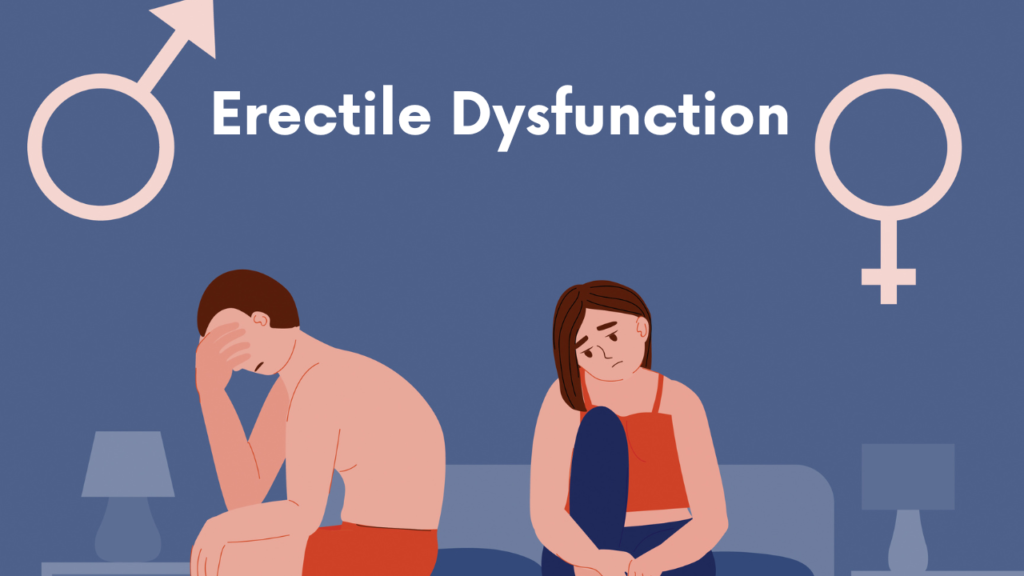
What is ED?
ED or erectile dysfunction (impotence) is the inability to get
and keep an erection firm enough for sex. Having erection trouble from time to time isn’t necessarily a cause for concern.
What are causes of ED?
ED happens most often when blood flow in the penis is limited or when nerves are harmed due to stress or emotional reasons. It can also be an early warning of a more serious illness such as atherosclerosis (hardening or blocked arteries), heart disease, high blood pressure or high blood sugar caused from diabetes.
Can ED be cured?
Almost all cases of erectile dysfunction are treatable. Treatment can lead to better overall physical and emotional health for nearly every patient. It can also improve intimacy for couples.

DDC Health Care recognizes the toll that ED has on men and their relationships when sexual health is a big factor to happiness and quality of life.
Count on us to provide meaningful support!
WHAT WE PROVIDE:
Low cost, effective treatments
40 customized treatments for erectile dysfunction. We can find the right one for you.
Custom formulation and custom dosing to fit designed for your needs.
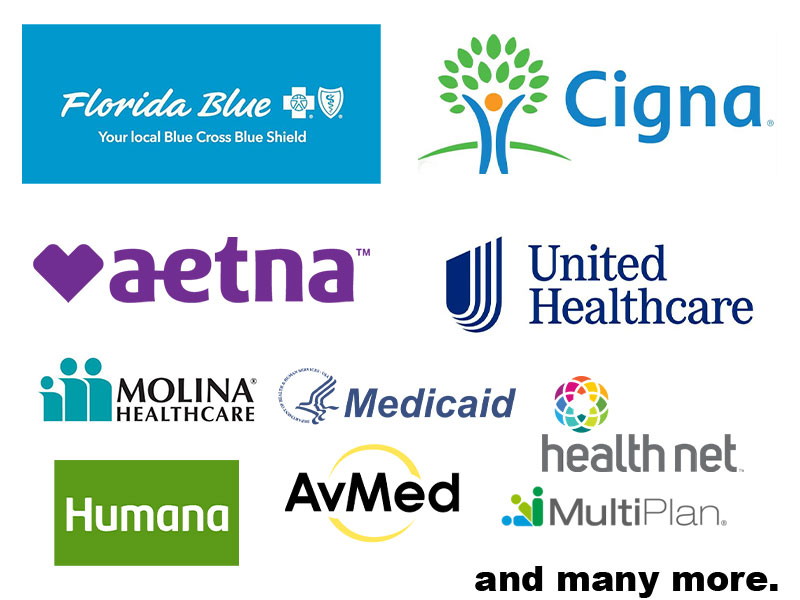
Looking for a new primary care doctor?
Your doctor no longer accepts your insurance?
We accept many insurances.
We are welcoming new patients in our Bonita Springs location.
Conveniently located. Same day appointments. No waiting.
Call today! The Doctor will answer all your questions!

Men and Exercise
Improved Cardiovascular Health
Regular exercise helps improve cardiovascular health in men. Physical activity promotes a stronger heart, improves blood circulation, and lowers the risk of heart disease, stroke, and high blood pressure. Studies have shown that men who participate in regular aerobic exercise, such as brisk walking, jogging, or cycling, have a significantly reduced risk of developing cardiovascular conditions
.
Weight Management and Muscle Strength
Regular physical activity is essential for maintaining a healthy body weight and promoting muscle strength in men. Cardiovascular exercises and strength training helps burn calories, build lean muscle mass, and improve metabolism, contributing to weight management. Studies have shown that resistance training, in particular, is beneficial for men as it helps increase muscle mass and bone density, reducing the risk of osteoporosis.
Mental Health and Well-Being
Exercise is beneficial for physical health and is crucial in promoting mental health and well-being in men. Regular physical activity has reduced symptoms of depression, anxiety, and stress
0(0%)). Engaging in exercise releases endorphins, natural mood-enhancers, and improves sleep patterns, improving overall mental well-being.
Lower Risk of Chronic Diseases
Men who maintain an active lifestyle have a lower risk of developing chronic diseases. Regular exercise has been shown to reduce the risk of conditions such as type 2 diabetes, certain cancers (e.g., colon and prostate), and metabolic syndrome. Incorporating moderate-intensity activities, such as brisk walking or cycling, for at least 150 minutes per week can significantly reduce the incidence of these chronic diseases.
Regular physical activity is fundamental to men’s health; it improves cardiovascular health, weight management, muscle strength, and mental well-being while reducing the risk of chronic diseases. By incorporating exercise into their daily routines, men can take proactive steps toward maintaining optimal health and well-being.
